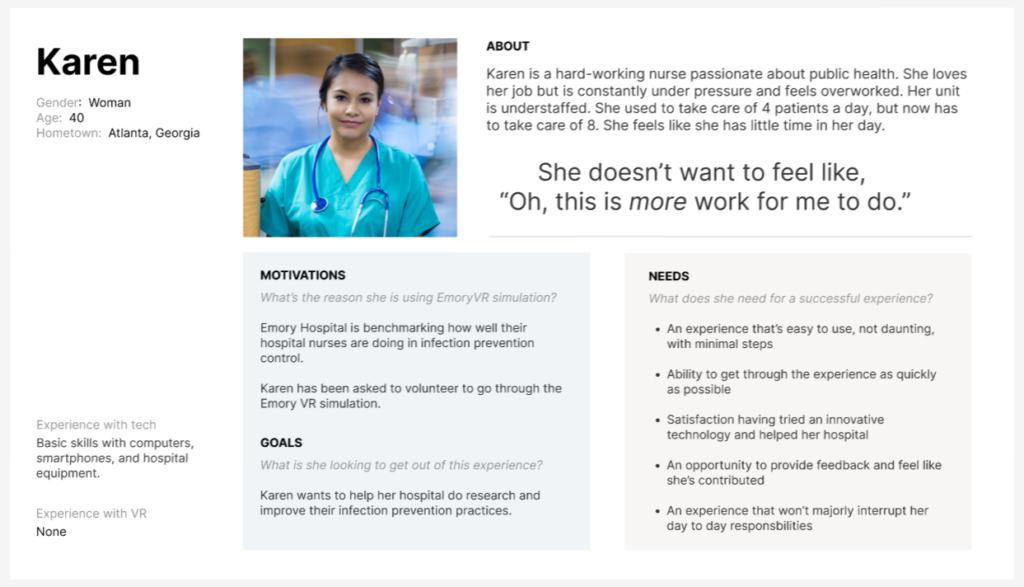Project Brief
Healthcare-associated infections (HAIs) are infections people get at a healthcare facility while receiving medical care for another condition. A key driver of HAIs is inadequate infection prevention and control (IPC) practices. Many hospitals lack sufficient and regular IPC training programs for staff.
Working with Inception XR and leading healthcare partners, our team designed a VR training simulation to accelerate nurses’ knowledge acquisition of IPC protocols.
“One of the CDC’s core missions is to provide innovative and accessible IPC training for frontline healthcare workers to ensure safe healthcare.”
Using the VR simulation as an immersive learning and training tool, nurses can perform medical tasks in VR while being assessed on their ability to avoid the spread of contaminants.
The experience

The first module focuses on placing an IV catheter into a virtual patient’s arm. The simulation tracks the user’s compliance with IPC protocol while performing the task in VR, including proper hand hygiene, changing gloves, and cleaning surfaces and medical equipment – all in a simulated hospital environment.
The design work included considerations for complex interactions, including locomotion, controller inputs, virtual object manipulation, and consistent feedback for user actions. Our team considered the many challenges of designing for users who had never used VR, providing clear instructions and visual cues to guide the user through the simulation.
L3A’s Role
Designing for VR is always challenging, especially when the goal is to simulate complex actions from real-world scenarios. One of our goals for the project was to help our clients establish a clear visual language and foundation for documenting the user experience in their VR application. Our team:
- Established a clear visual language for all UX documentation
- Developed a scalable and adaptable VR interaction design system
- Crafted user personas to identify user needs
- Defined interactions with virtual objects
- Designed overall application structure and user journey
- Created storyboards that acted as blueprints and guided dev work
- Identified strategic placement and requirements for animations, UI elements, SFX, VFX, & VO
- Optimized overall virtual layout to maximize user comfort
- Developed content for instructions, feedback, and voice-overs
Interactions design work included:
- Locomotion system (via teleportation and anchors)
- Controller mapping (Quest 2 and Meta Pro)
- Virtual hand poses
- Complex object interactions, including grabbing and manipulating virtual medical supplies (syringes, tourniquets, IV catheters, etc), virtually washing and drying hands, putting on and taking off virtual gloves, dropping and respawning objects, etc.
Sample Documentation



If you’d like to learn more about our work in VR, reach out!